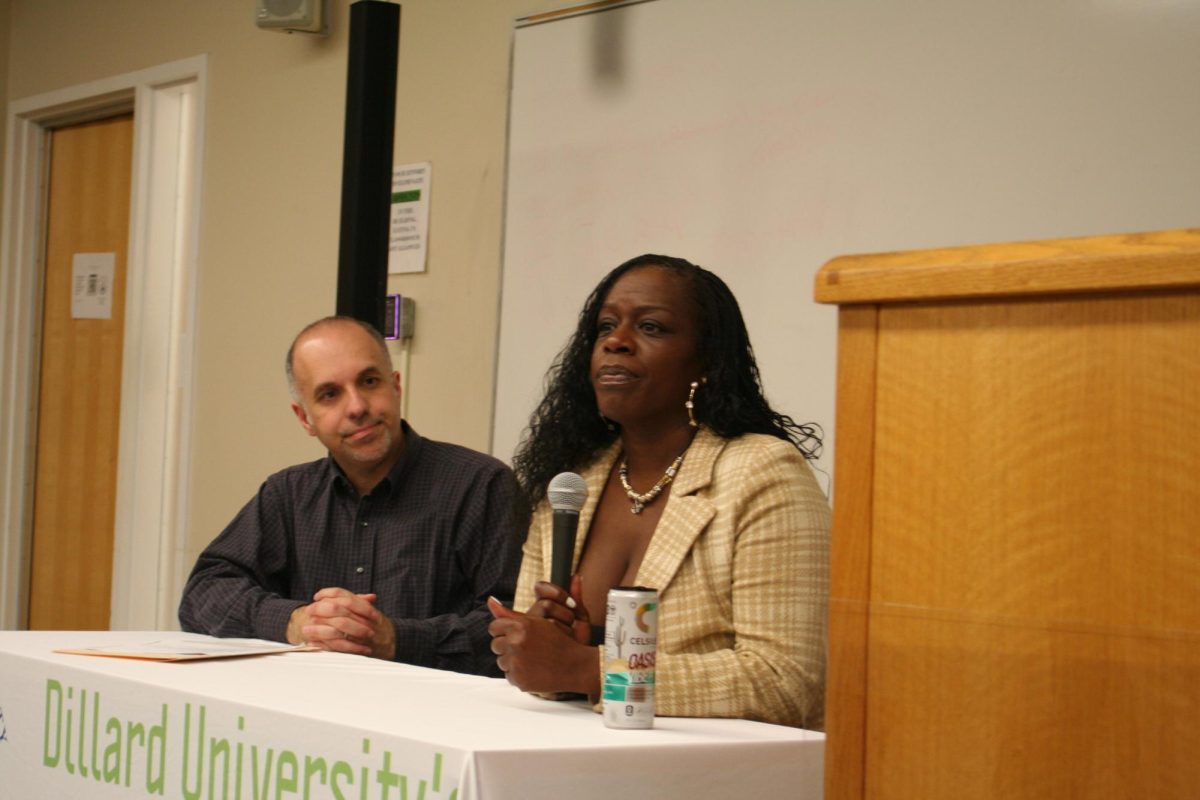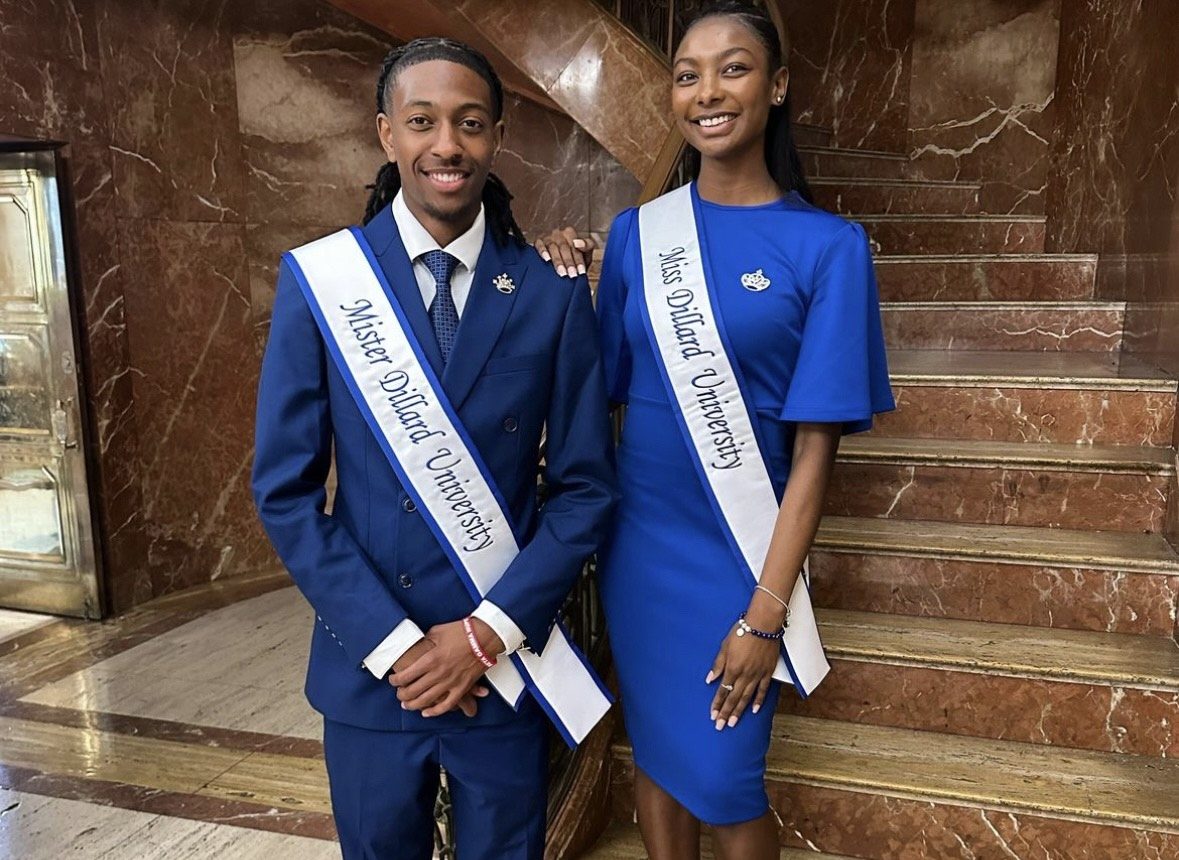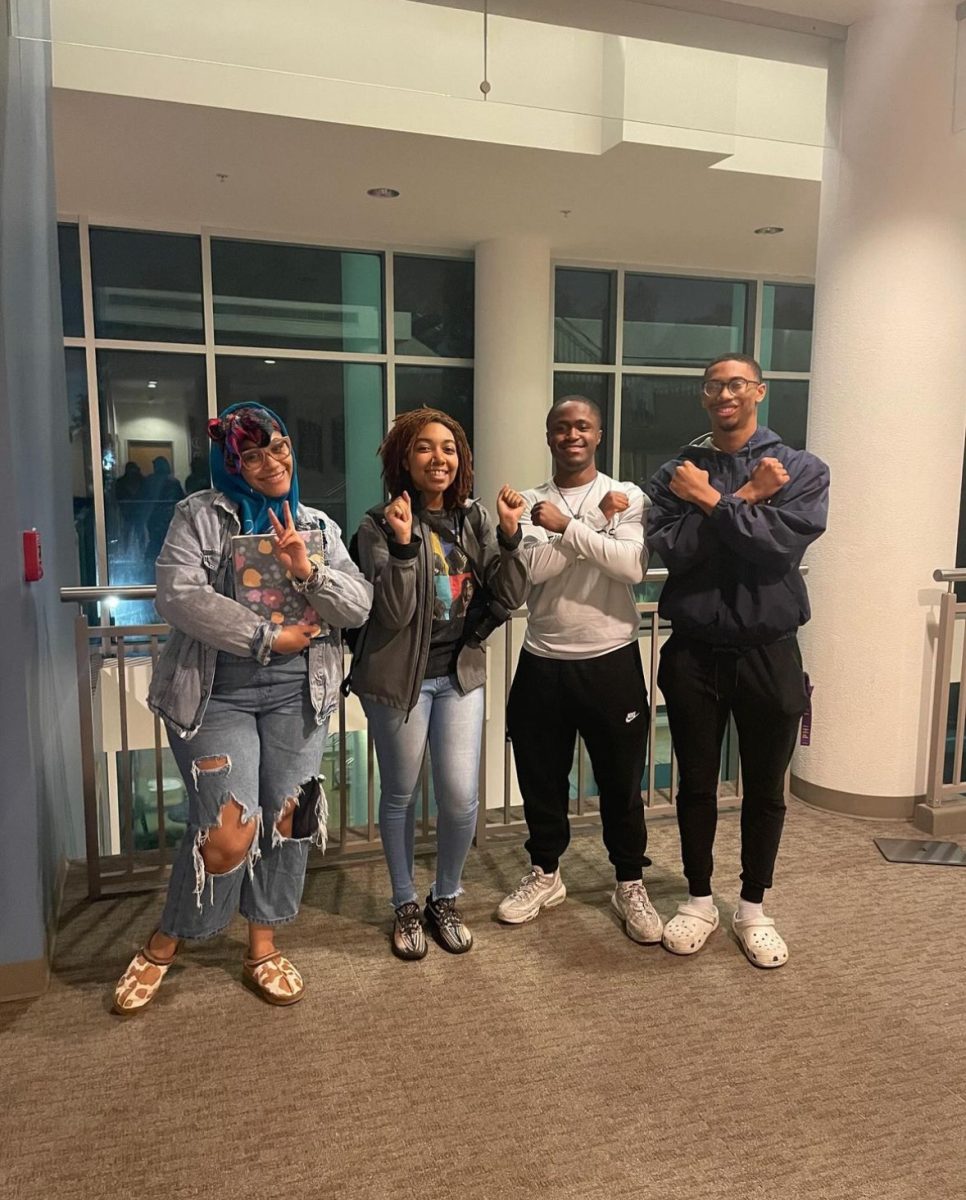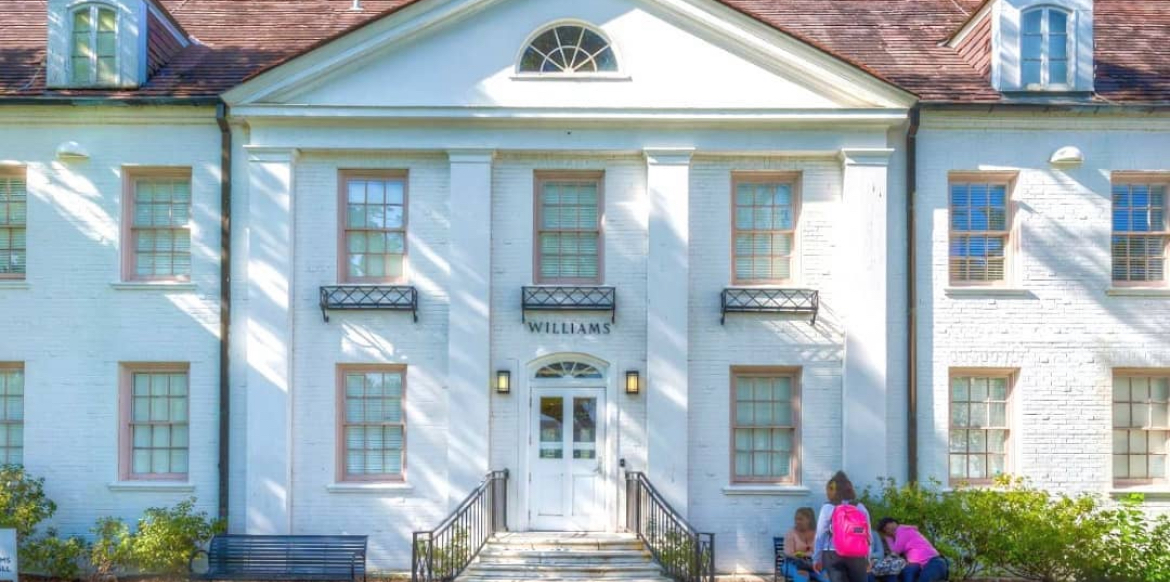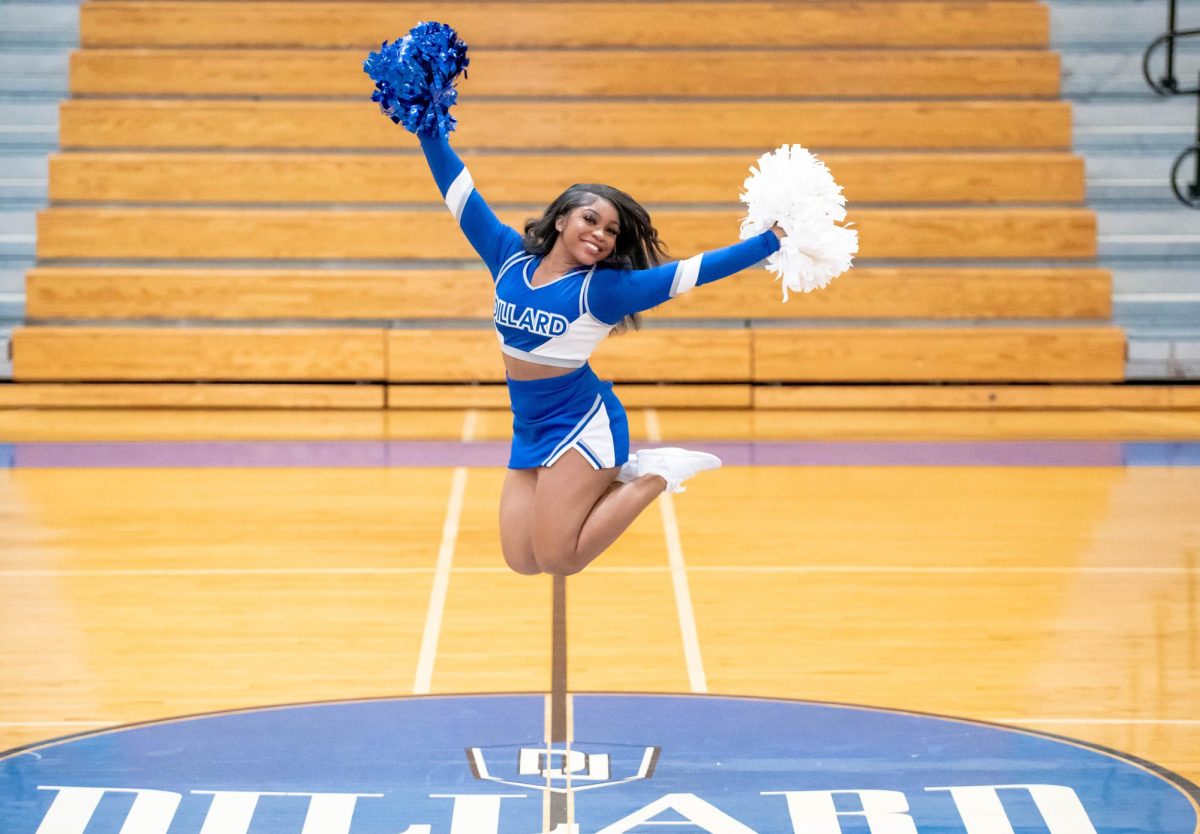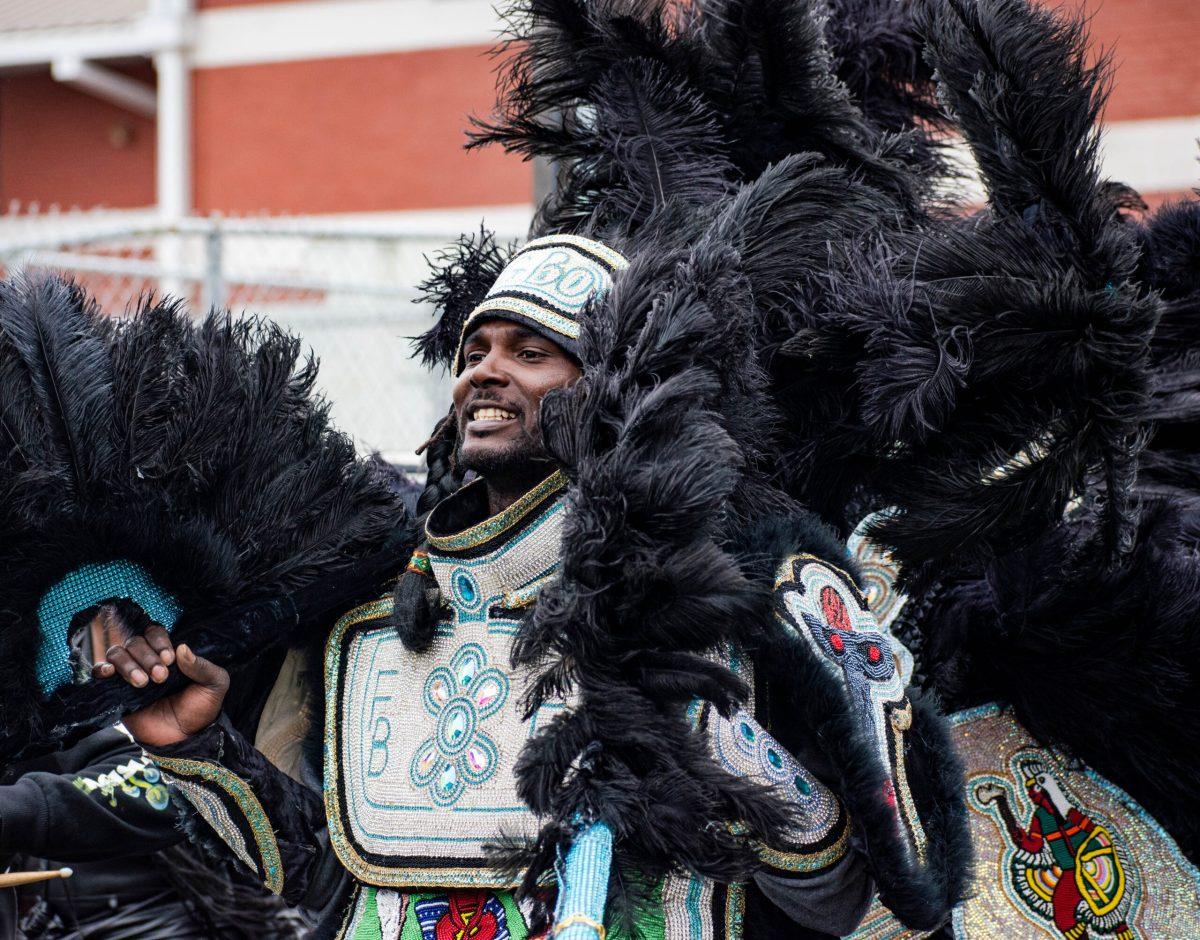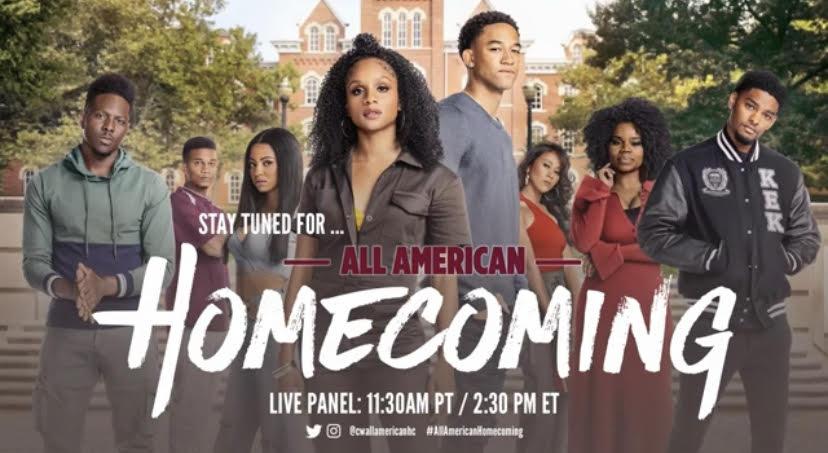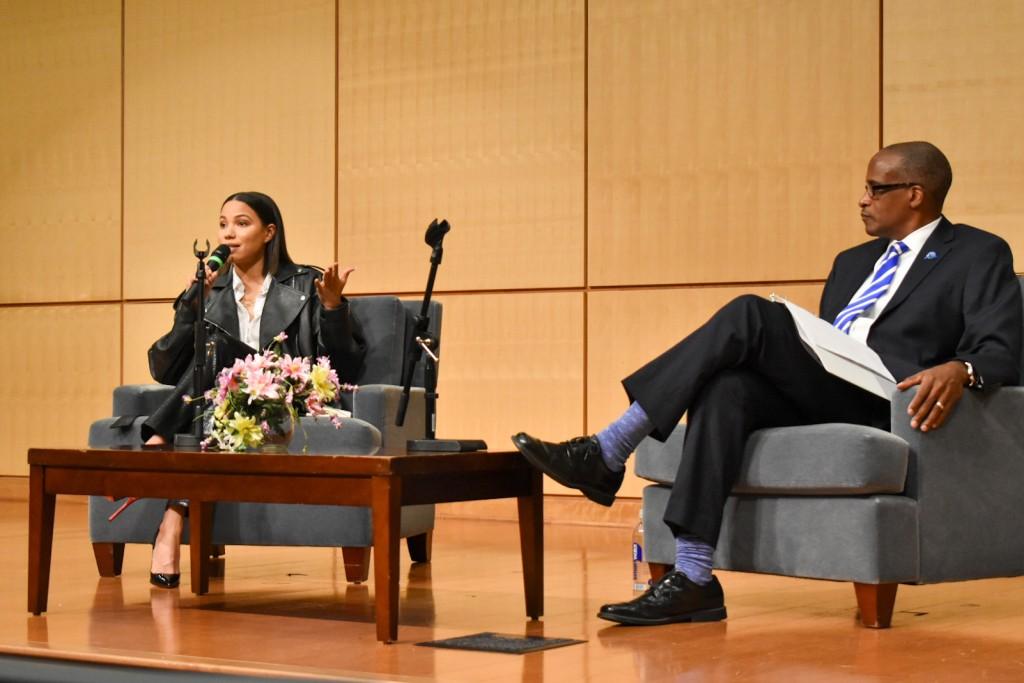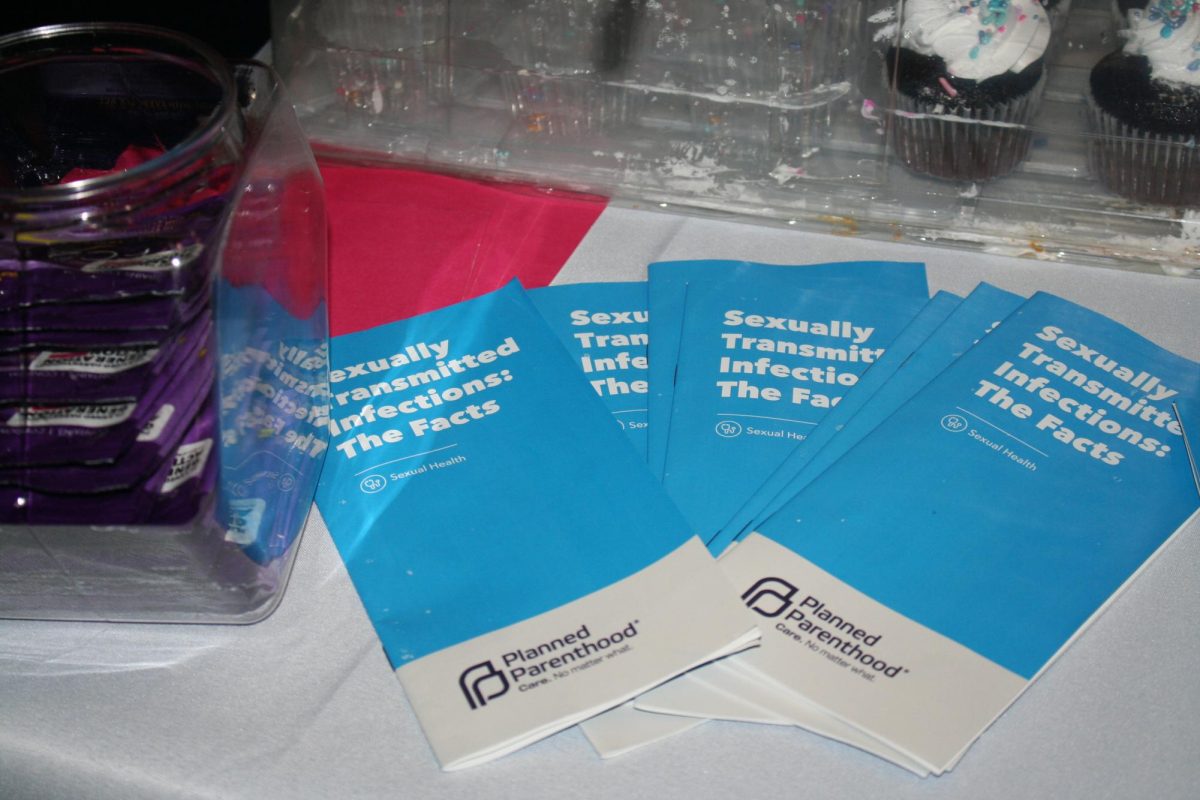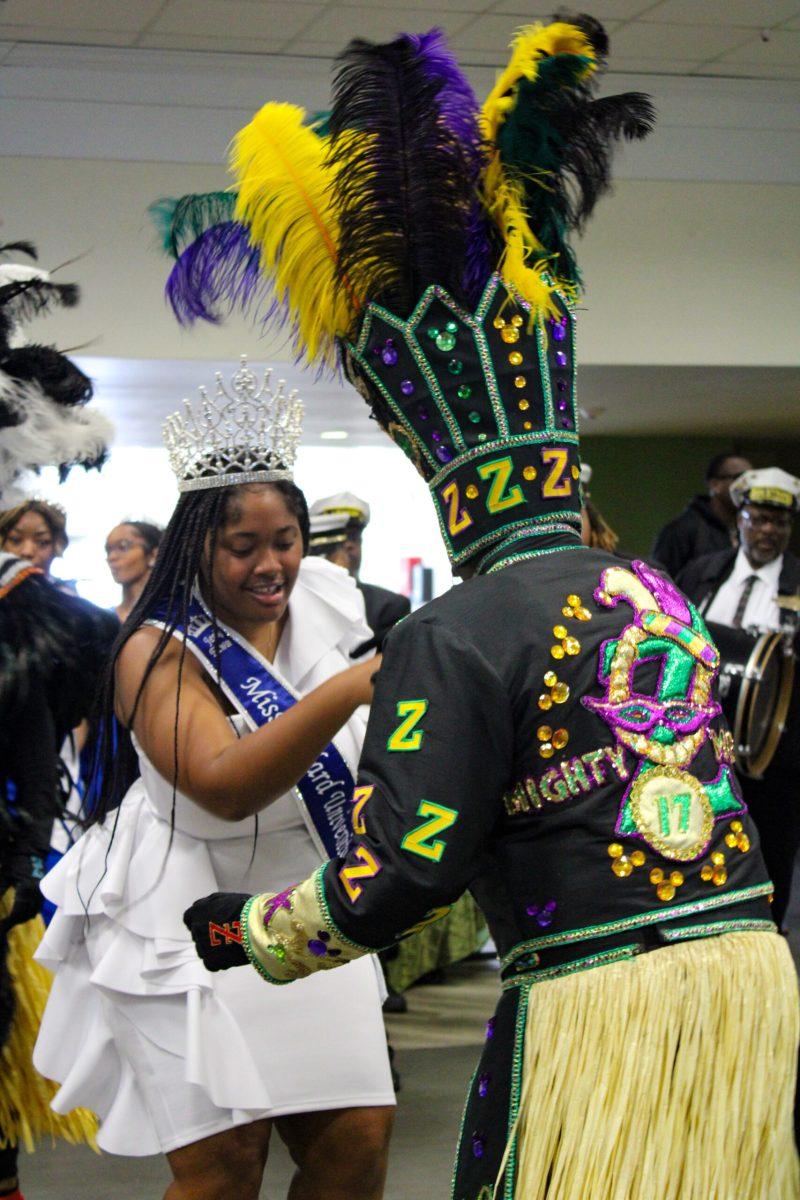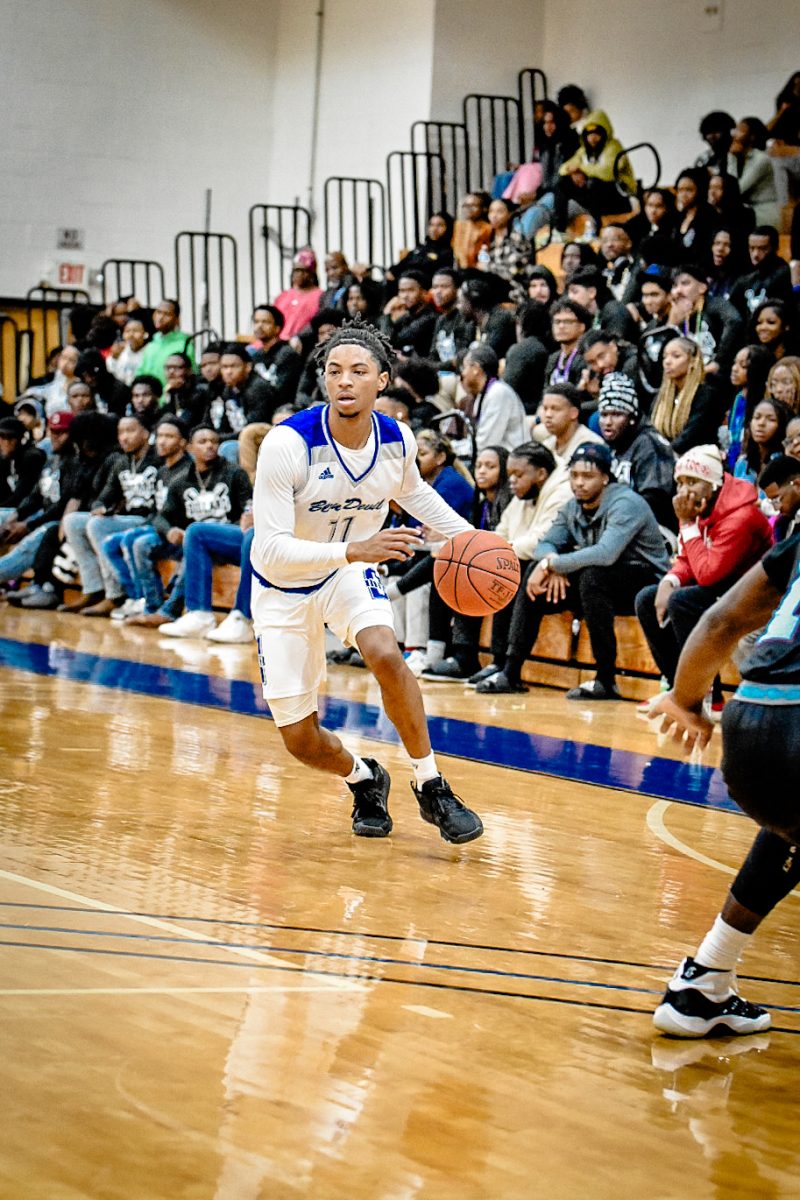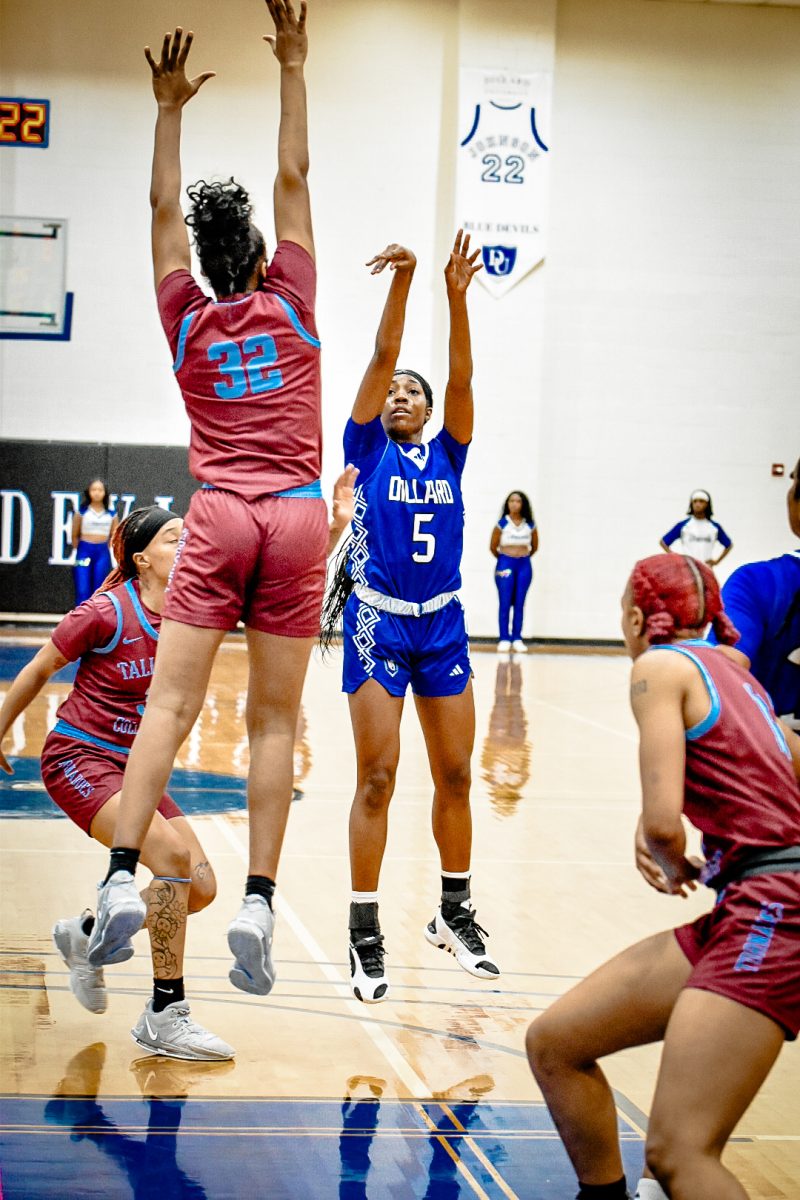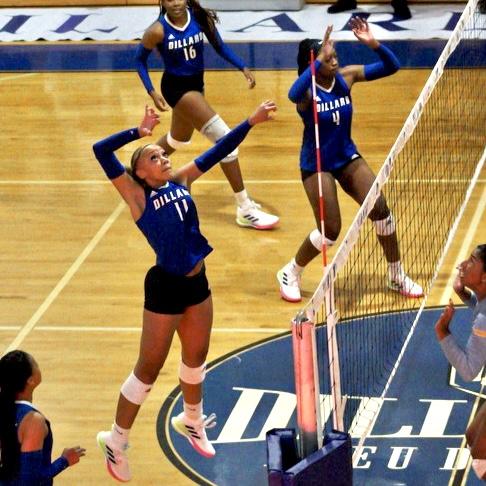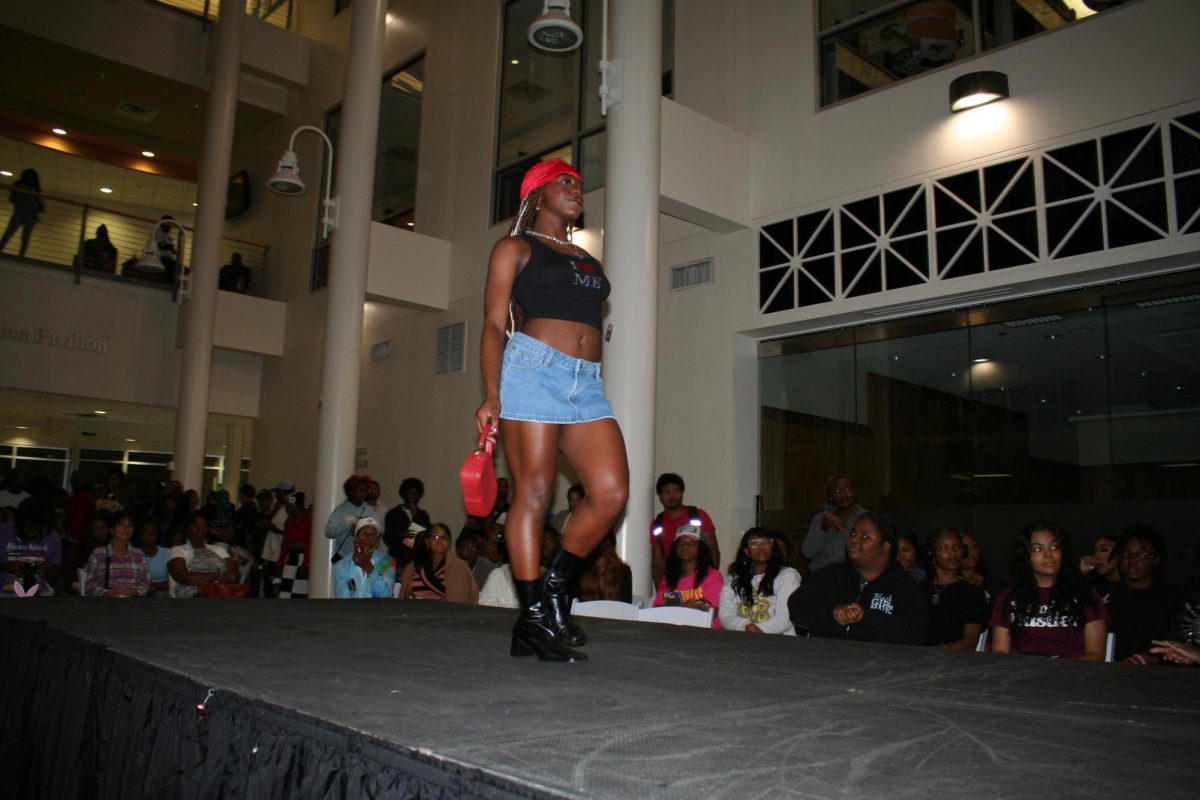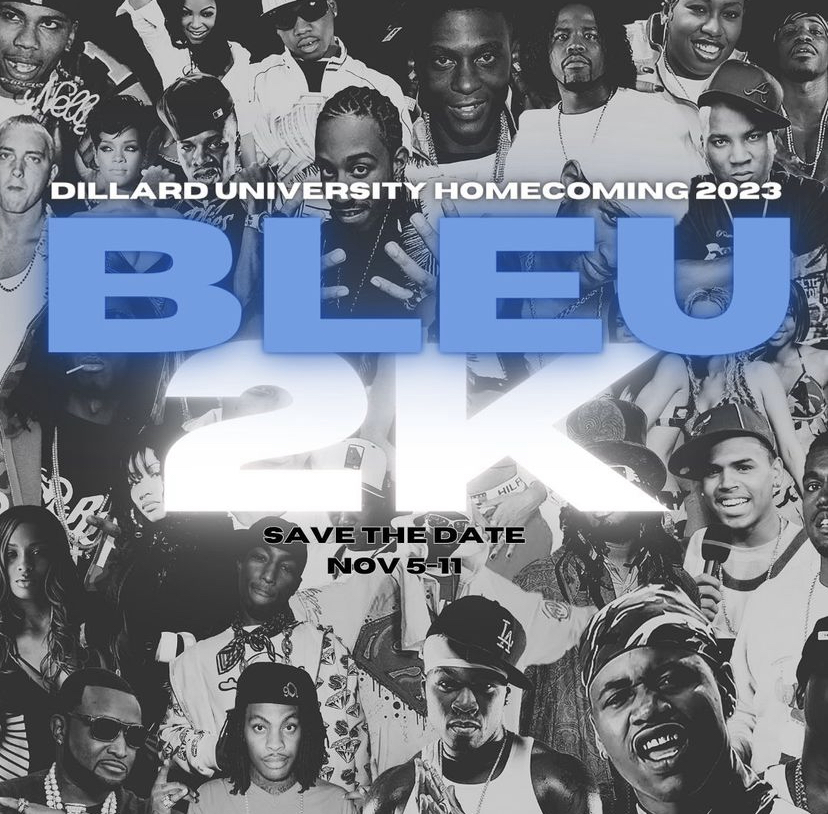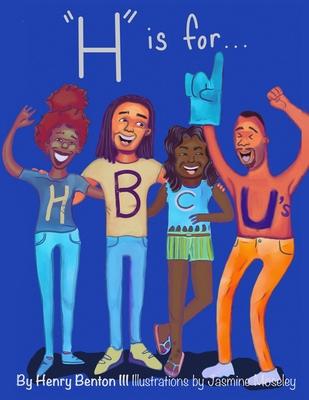People from Chicago and New Jersey may buy groceries, but New Orleanians “make groceries.”
These phrases as well as others have become a distinctive characteristic on Dillard’s campus.
New Orleans lingo, formally known as Dillard dialect, has spilled over into the mouths of several of the university’s students.
Michelle Daily, a freshperson history major from St. Louis, admitted that it is sometimes hard to understand the meaning of some of the dialect used on campus.
“For instance, I heard a guy say his ‘ole lady,’ and assumed he was talking about his mother, but he was referring to his girlfriend,” Daily said. “It is different from the way we talk in St. Louis, but the music is also different; I just have to get used to it.”
Shalita Singleton, a freshman from Las Vegas, said she had never heard the phrase “that’s what’s up,” which has multiple meanings, until coming to Dillard.
“They [New Orleans natives] use it for everything. They say it if something looks good or sometimes they just shove it at the end of a sentence,” Singleton said. “For instance, one might say, ‘I’m going to the party this weekend’ and her friend might say, ‘That’s what’s up,’ it’s crazy.”
However, Singleton said some of the sayings are not unfamiliar, such as, “beaucoup” which means excessive. “We say that in Las Vegas, too,” Singleton said.
While it is difficult for freshmen to understand some of the Dillard dialect, many New Orleans natives consider it natural.
“We have this thing where we stress certain words such as, ‘baby’ and the word ‘heard’ in the saying ‘ya heard me,’ which means do you understand me,” said Riga Watkins, a sophomore theater major from New Orleans.
“People that are not from New Orleans automatically assume I am from here by the way I talk,” said Watkins.
Sophomores, Steve Gomez and Ralph James, both from New Orleans, use the dialect as part of everyday conversation with friends.
“When we’re trying to get someone’s attention we say ‘say bruh’ instead of excuse me,” said Gomez. “It just sounds better,” James said.
Some faculty members expressed their views on this Dillard dialect.
“Familiarity allows for a less formal tone. Everyone has their own private language and nothing is wrong with that because that’s how we get dialect,” said Mona Lisa Saloy, associate professor of english.
According to Saloy, it is important to understand when it is appropriate to be informal.
“At the beginning of the semester I am very formal in class, but as the year progress, my own dialect kicks in. But it is important that I set the tone of my expectations by using standard American English,” Saloy said.

